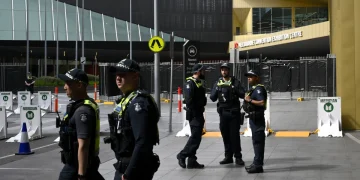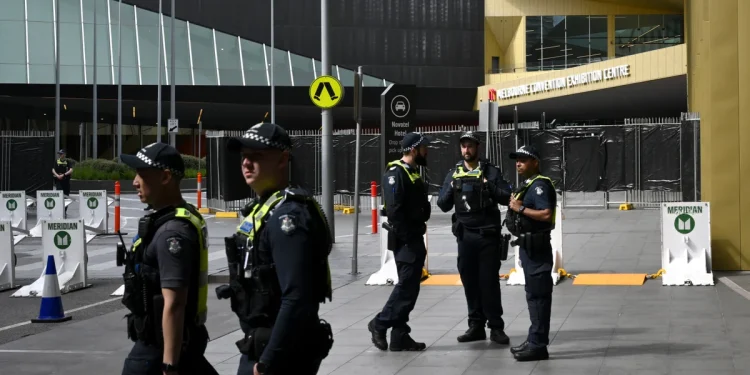By Maria Kalamatas | July 29, 2025
Melbourne, July 29 — Freight giant Toll has become the focus of a growing controversy after coordinated demonstrations blocked access to its Melbourne facilities over the weekend. Activists claim the company is linked to military shipments tied to the Israel–Gaza conflict, allegations the logistics operator firmly denies.
“These protests show how quickly global politics can spill over into the freight sector,” said Claire Bennett, a logistics analyst at Oceanic Supply Chain Review. “Even companies not directly involved in military trade can find themselves in the crosshairs.”
Demonstrations stall cargo movement
Protesters gathered outside two Toll depots near the Port of Melbourne, blocking truck access for several hours on Sunday. The demonstrations, led by a pro-Palestine coalition, accused the company of handling defense-related cargo.
Local police intervened, making several arrests for trespassing and obstruction. No cargo was damaged, but operations at the depots were briefly suspended, delaying freight headed for domestic retailers and exporters.
Toll’s official stance
In a statement released Monday, Toll stated that it “does not transport weapons or ammunition” and emphasized that all shipments meet Australian and international regulations. The company said additional security had been deployed at its depots to avoid further disruptions.
Industry observers note that while the protests were short-lived, they created temporary slowdowns on key trade lanes serving Victoria and South Australia.
A growing challenge for logistics firms
Experts warn that such incidents could become more frequent as global political disputes fuel activism targeting transport providers. Even firms with no direct links to defense contracts risk reputational damage and operational headaches.
“Transparency and communication will be critical,” Bennett explained. “Freight companies need to be ready to prove compliance quickly when these accusations surface.”
What’s next
Authorities have pledged to step up monitoring at Melbourne’s primary logistics hubs, while Toll is working with regulators and community groups to ease tensions. Supply chain analysts believe more protests could surface as geopolitical flashpoints intensify.
“This won’t be a one-off,” Bennett added. “The logistics industry has to prepare for more of this as global tensions rise.”





















